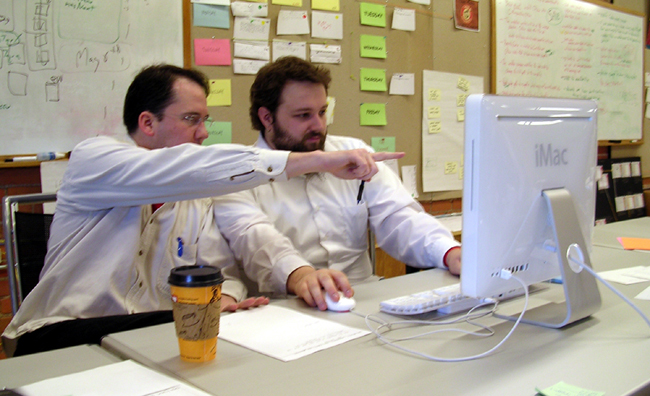[caption id="attachment_2070" align="aligncenter" width="650"]

Pair programming, an agile development technique used by XP (Lisamarie Babik/Wikimedia).[/caption]
In the 1990s and early 2000s something happened in the software development world, something that wasn’t good. Software development fell victim to the bean counters and micromanagers of the world and followed a project management script known as the “waterfall method.” The waterfall method was fine for projects that were simple and well-defined, but many many software projects fell out of this realm with either changing requirements, or trying to understand new technology—or sometimes both at the same time.
As a result, many software development projects in the ‘90s were organizational nightmares. Much of the purpose of developing software to begin with (i.e., why are we building this?) was lost as organizations devolved into procedural nightmares and territory fights.
This is the short story of the agile revolution—a term you may have heard of. But you probably didn’t realize was a cultural revolution.













